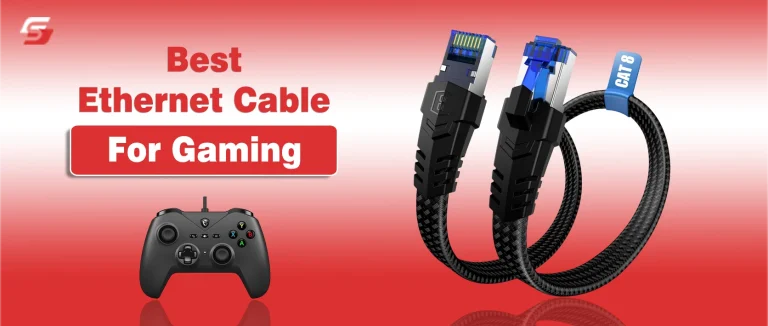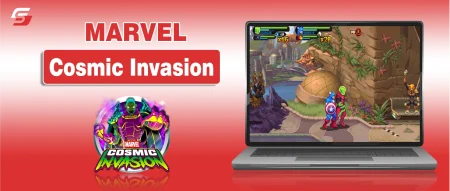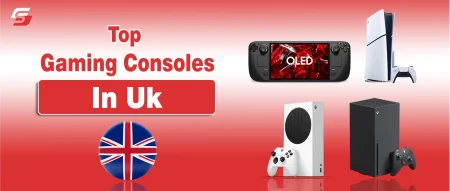Every gamer knows the frustration of lag striking at the worst possible moment, that split second between victory and defeat often comes down to connection quality. While Wi-Fi offers convenience, Ethernet cables deliver what wireless can’t: consistent speed and unwavering stability.
Yet with so many categories, Cat5e, Cat6, Cat7, Cat8, finding the best Ethernet cable for gaming isn’t as simple as it looks. Does a Cat8 really boost your speed, or is it just expensive marketing? Can a budget Cat6 still handle next-gen consoles and gigabit internet?
In this guide, we’ll break down how cable type, bandwidth, shielding, and brand quality affect your gaming performance. Whether you’re optimizing a PC setup, PS5, Xbox Series X, or a streaming rig, you’ll learn which cables deliver the lowest ping and most stable gameplay, and which upgrades aren’t worth your money.
What Makes a Cable Best for Gaming?
A gaming Ethernet cable becomes “best” when it maintains low latency, stable data transmission, and consistent speed across long sessions. The cable must support high bandwidth capacity, strong shielding, and low signal interference to handle the rapid exchange of game data between console, router, and server. For online gamers, performance depends on how efficiently a cable minimizes packet loss and jitter, ensuring smooth gameplay, quick response times, and uninterrupted streaming.
Key Performance Factors for Gaming Cables
Gaming cable performance depends on several measurable factors including latency, bandwidth, shielding, and build quality.
- Latency defines how quickly data travels from the console or PC to the router; lower latency reduces input delay in fast-paced games.
- Bandwidth capacity determines how much data the cable can transfer per second. Cables with higher bandwidth, such as Cat6a or Cat8, deliver smoother multiplayer experiences.
- Shielding quality prevents electromagnetic interference from nearby electronics, maintaining data integrity.
- Build materials, including gold-plated connectors and oxygen-free copper wires, improve signal strength and durability.
A gaming Ethernet cable that optimizes all these factors ensures consistent frame rates, faster downloads, and more reliable multiplayer connections, making it ideal for competitive gaming environments.
Do Expensive Ethernet Cables Really Improve Gaming?
Expensive Ethernet cables often include enhanced shielding, premium materials, and tighter manufacturing standards, but they do not automatically increase gaming speed beyond your network’s capacity. Internet performance depends mainly on the router speed, ISP bandwidth, and cable category rating.
Premium cables, such as Cat7 or Cat8, offer better noise protection and longer lifespan, which may improve connection stability in interference-heavy environments. However, midrange cables like Cat6a already deliver low latency and strong throughput sufficient for most gaming setups.
In practice, expensive cables improve durability and signal protection, not the actual speed your internet plan provides. For most gamers, the best investment is a well-built cable rated for their router’s maximum speed and gaming distance requirements.
How Cable Quality Impacts Speed and Stability
Cable quality directly impacts both network speed and connection stability during gaming sessions. High-quality cables use twisted-pair wiring, effective shielding, and gold-plated connectors to maintain signal integrity. Poor-quality or damaged cables can cause data packet loss, signal noise, and increased latency, leading to lag or disconnects in online games.
A durable gaming cable with tight pair twists and strong shielding ensures steady data flow even under heavy network traffic. Consistent signal transmission minimizes frame drops, loading delays, and jitter, resulting in smoother and more responsive gameplay. In short, better cable quality maintains high-speed data transfer and protects against performance fluctuations, especially in high-bandwidth gaming setups.
Ethernet Cable Categories (Cat5e–Cat8 Explained)
Ethernet cable categories define how efficiently data travels between gaming devices and routers. Each category represents an improvement in speed capacity, frequency range, and signal integrity.
These categories helps gamers choose a cable that supports high-speed data transfer, low latency, and stable connectivity during online play. From Cat5e to Cat8, every version offers distinct benefits based on bandwidth, shielding type, and maximum supported distance.
Ethernet Cable Categories
Ethernet cable categories classify cables by their maximum transmission speed and frequency performance.
- Cat5e cables support up to 1 Gbps speeds with 100 MHz frequency, suitable for most home networks.
- Cat6 cables handle up to 10 Gbps at 250 MHz for shorter runs, improving data integrity.
- Cat6a cables increase frequency to 500 MHz, allowing better stability over longer distances.
- Cat7 cables deliver up to 10 Gbps at 600 MHz, using advanced shielding to minimize interference.
- Cat8 cables provide up to 40 Gbps at 2000 MHz, ideal for modern high-bandwidth applications.
Cat5e and Cat6: Are They Still Reliable for Gaming?
Cat5e cables remain reliable for gaming that requires stable 1 Gbps speeds. They provide consistent performance in typical home setups with minimal interference when cable runs are under 100 meters. Cat6 cables, however, outperform Cat5e by supporting 10 Gbps transmission over shorter distances (up to 55 meters) and maintaining lower latency.
For gamers using gigabit routers and modern consoles or PCs, Cat6 offers a balanced choice of affordability and speed. Both cable types ensure low ping times for casual and competitive online gaming, though Cat6 provides stronger performance under heavy data loads.
Cat7 vs Cat8: What’s the Real Difference?
Cat7 and Cat8 Ethernet cables differ primarily in speed, shielding, and supported frequency range.
- Cat7 cables operate at 10 Gbps with 600 MHz bandwidth, featuring S/FTP shielding to reduce electromagnetic interference.
- Cat8 cables significantly advance this by supporting up to 40 Gbps speeds and 2000 MHz frequency, offering near-zero crosstalk and maximum stability.
For gaming, Cat7 performs exceptionally in typical setups, while Cat8 suits high-demand environments like 4K streaming, cloud gaming, and local area network tournaments.
Cat8’s superior shielding and bandwidth provide faster data flow and reduced latency, though its benefits become noticeable mainly on ultra-fast internet plans and advanced routers.
Bandwidth and Frequency: How MHz Affects Gaming Speed
Bandwidth and frequency determine how efficiently an Ethernet cable transmits game data packets.
- Bandwidth measures the maximum data volume a cable can handle per second.
- Frequency (MHz) defines how many signal cycles occur each second, influencing data accuracy and speed.
Cables like Cat6a (500 MHz) and Cat8 (2000 MHz) support higher data throughput, resulting in smoother gameplay, minimal packet loss, and reduced latency during online sessions.
Lower-category cables, such as Cat5e, may limit bandwidth, leading to slower data exchange under heavy gaming loads. For modern gaming systems, choosing a cable with higher frequency ensures stable frame rates and faster response times in competitive play.
Is Cat8 Overkill or Future-Proof for Gaming?
Cat8 cables are future-proof rather than overkill for gaming. They deliver up to 40 Gbps speeds, 2000 MHz frequency, and superior double shielding, making them ready for next-generation gaming and gigabit-plus internet plans.
While current gaming consoles and PCs rarely use that much bandwidth, Cat8 ensures long-term compatibility, especially for gamers using multi-device streaming setups or LAN gaming environments. Its low latency, high signal accuracy, and strong shielding make Cat8 ideal for users who want maximum reliability for both gaming and high-performance networking.
Wired vs Wireless: Why Ethernet Wins
An Ethernet connection delivers a more stable and consistent network experience for gamers compared to Wi-Fi. The cable provides a direct data path between the router and the gaming device, which eliminates signal interference, packet loss, and latency fluctuations. Wi-Fi, on the other hand, depends on radio signals that can weaken due to obstacles, distance, or other devices using the same frequency band.
For competitive and online gaming, Ethernet ensures steady throughput, faster response times, and minimal lag. The physical connection guarantees predictable performance, making wired setups the preferred choice among serious gamers who value speed and reliability over convenience.
Is Ethernet Really Faster Than Wi-Fi for Gaming?
Ethernet is generally faster than Wi-Fi because it transmits data through a wired connection that avoids wireless signal interference and bandwidth congestion. While modern Wi-Fi standards like Wi-Fi 6 and Wi-Fi 7 offer high theoretical speeds, actual performance often drops due to distance, wall interference, and shared bandwidth with other devices.
| Feature | Ethernet (Cat6–Cat8) | Wi-Fi (Wi-Fi 5–7) |
| Speed Stability | Consistent up to 1–10 Gbps | Variable, depends on distance |
| Latency (Ping) | 1–5 ms typical | 15–50 ms typical |
| Interference | None (wired signal) | High (microwaves, walls, devices) |
| Packet Loss | Minimal | Moderate under congestion |
| Best Use Case | Competitive & streaming | Casual gaming or mobile play |
How Wired Connections Improve Ping Stability
A wired connection improves ping stability by reducing latency variance and packet retransmission. The physical cable ensures a steady flow of data packets from the gaming console or PC to the router without interference from other wireless networks or household devices.
In Wi-Fi connections, latency often fluctuates due to signal noise, bandwidth sharing, or channel congestion. Ethernet maintains consistent response times, which prevents spikes that cause lag or stuttering during competitive matches. Lower and stable ping values allow players to react faster and maintain smoother interactions with game servers, improving overall responsiveness and accuracy in gameplay.
Should You Switch from Wi-Fi to Ethernet for Competitive Gaming?
Competitive gamers should switch from Wi-Fi to Ethernet if they want consistent performance and minimal lag during online matches. Ethernet cables provide dedicated bandwidth, uninterrupted connectivity, and predictable latency, which are crucial in fast-paced multiplayer titles like shooters and fighting games.
Wi-Fi’s convenience often comes at the cost of unstable ping and potential disconnections, especially in homes with multiple connected devices or thick walls. A wired setup ensures maximum stability, allowing competitive players to maintain faster reaction times and more accurate in-game synchronization. For anyone aiming for performance consistency, Ethernet remains the most reliable connection for gaming.
Platform-Specific Picks
Different gaming platforms, such as PC, PlayStation, Xbox, and laptops, have unique network requirements and hardware interfaces. Choosing the right Ethernet cable ensures each device performs at its best by matching its port speed, bandwidth capacity, and shielding needs.
A PC setup used for streaming demands high throughput and minimal jitter, while a PS5 or Xbox setup benefits from stable latency and plug-and-play reliability. Selecting platform-optimized cables guarantees consistent online performance and faster downloads across all gaming devices.
Best Ethernet Cable for PC Gaming and Streaming
A Cat7 or Cat8 Ethernet cable is ideal for PC gaming and streaming, as it supports up to 40 Gbps data transfer speeds and provides superior shielding against interference. PC gamers often run multiple background applications, such as Discord, OBS, and game launchers, which require high bandwidth.
Recommended Options:
- Cat8 S/FTP Cable – Offers maximum speed and shielding for 4K streaming and competitive gaming.
- Cat7 Flat Cable – Ideal for cable management setups with limited desk space.
Performance Summary:
| Attribute | Recommended Type | Benefit |
| Speed Capacity | Cat7–Cat8 | 10–40 Gbps stable connection |
| Shielding | Double foil (S/FTP) | Reduces EMI for clean data transfer |
| Best Use Case | Streaming, multiplayer gaming | Consistent high throughput |
A high-grade Cat7 or Cat8 cable ensures low latency and smooth 4K or 8K streaming, preventing frame drops or lag spikes during live broadcasts.
Best Ethernet Cable for PS5
The PlayStation 5 (PS5) features a Gigabit Ethernet port, which means it can fully utilize Cat6 or Cat6a cables. These cables offer up to 10 Gbps speeds with minimal interference, enough to support fast game downloads, stable multiplayer matches, and high-speed firmware updates.
Recommended for PS5:
- Cat6a Braided Cable – Provides durability and flexibility near consoles.
- Cat7 Cable – Enhances shielding in environments with multiple electronics.
Why It Fits PS5:
The Cat6a cable balances affordability, speed, and reliability, giving PS5 users low ping and steady connectivity without needing expensive Cat8 upgrades.
Best Ethernet Cable for Xbox Series X and S
The Xbox Series X and Series S both feature Gigabit Ethernet ports, which pair best with Cat6a or Cat7 cables for gaming stability. These cables maintain low latency and steady data transfer even during large online sessions or 4K streaming.
Recommended Choices:
- Cat6a Shielded Cable – Ensures balanced performance and affordability.
- Cat7 Round Cable – Provides stronger noise isolation in complex setups.
Performance Factors:
| Feature | Recommended Cable | Advantage |
| Speed Handling | Up to 10 Gbps | Fast multiplayer response |
| Signal Stability | Shielded pairs | Reduced packet loss |
| Durability | Braided exterior | Longer lifespan near consoles |
Cat6a remains the best performance-to-cost option for Xbox users, delivering consistent ping stability for both casual and competitive play.
Best Ethernet Cable for Gaming Laptops
Best gaming laptops benefit from flexible, lightweight Ethernet cables that maintain portability without compromising performance. Since most laptops feature Gigabit Ethernet ports, Cat6 or Cat7 cables offer an ideal balance between speed, flexibility, and shielding.
Recommended Options:
- Cat6 Flat Cable – Easy to carry and ideal for temporary setups.
- Cat7 Slim Cable – Reduces clutter while maintaining signal strength.
Why It Works:
A Cat6 or Cat7 cable provides low-latency connections for online matches and cloud gaming while being lightweight enough for travel. For users streaming or gaming in public spaces, flat or slim designs simplify setup and portability.
Best Option for Mixed or Multi-Device Gaming Setups
Multi-device gaming setups that include PCs, consoles, and streaming hubs require cables that handle high cumulative bandwidth and minimal crosstalk. A Cat7 or Cat8 Ethernet cable ensures equal performance across all devices connected to the same router or switch.
Recommended Setup:
- Use Cat8 cables for devices closest to the router (PC, streaming console).
- Use Cat6a cables for secondary or less demanding devices.
- Combine with a Gigabit switch to distribute bandwidth evenly.
Summary Table:
| Device Type | Recommended Cable | Speed Range | Ideal Use |
| PC / Streamer | Cat8 S/FTP | 25–40 Gbps | High-end competitive or streaming setup |
| PS5 / Xbox | Cat6a or Cat7 | 10–25 Gbps | Reliable and shielded performance |
| Laptop | Cat6 / Cat7 Slim | 1–10 Gbps | Portable, low-latency connection |
| Mixed Setup | Combination (Cat6a + Cat8) | Multi-device | Balanced performance across all units |
Cat7 and Cat8 cables offer the most future-proof solution for gamers managing multiple devices or bandwidth-heavy networks, ensuring stability, speed, and seamless data synchronization.
Best Ethernet Cable Brands
The best Ethernet cable brands for gaming combine signal stability, build quality, and high-speed compatibility. Brands such as UGREEN, Cable Matters, Jadaol, Amazon Basics, and Dacrown have proven reliability for both competitive gamers and home network users.
Each brand offers distinct strengths, some prioritize premium shielding and 40 Gbps bandwidth, while others focus on affordability and flexible installation.
UGREEN Cat8 Ethernet Cable Review
UGREEN Cat8 Ethernet Cable is known for its high data transmission speed, robust shielding, and durable braided exterior. It supports up to 40 Gbps bandwidth and 2,000 MHz frequency, making it one of the fastest cables available for online gaming and 8K streaming.
Performance Summary:
| Attribute | Specification | Gaming Benefit |
| Bandwidth | 40 Gbps | Prevents lag and ensures instant response |
| Shielding | Double (S/FTP) | Protects against interference from nearby devices |
| Material | Braided nylon | Resists bending and physical wear |
| Compatibility | Cat8 backward compatible | Works with PS5, Xbox, PC, and routers |
UGREEN’s Cat8 cable offers both future-proof performance and physical resilience, making it one of the best overall Ethernet cables for serious gamers.
Cable Matters vs Jadaol: Which Performs Better?
Cable Matters and Jadaol both produce high-quality Ethernet cables suitable for gaming and high-speed internet use, but they differ in design and installation flexibility.
| Brand | Cable Category | Design | Best For | Key Strength |
| Cable Matters | Cat6a / Cat7 | Round, heavy-duty | PC or console setups | High shielding and consistent speed |
| Jadaol | Cat6 / Cat7 | Flat, flexible | Wall or floor routing | Easy installation and space-saving design |
- Cable Matters cables feature thick copper wiring and strong shielding, offering steady throughput for high-performance setups.
- Jadaol cables are flat and tangle-free, perfect for under-carpet or wall installations without speed loss.
For pure gaming performance, Cable Matters offers better ping stability and noise protection. For compact or aesthetic setups, Jadaol provides easier management and installation.
Is Amazon Basics Good Enough for Gaming?
Amazon Basics Ethernet Cables deliver reliable connectivity for casual and mid-tier gaming setups at a low cost. These cables typically support Cat6 or Cat6a standards, providing up to 10 Gbps speed suitable for most modern routers and consoles.
Advantages of Amazon Basics Cables:
- Affordable Pricing: Typically under $15 for 10–15 ft lengths.
- Decent Build: PVC outer layer for general household use.
- Plug-and-Play Setup: Compatible with all standard RJ45 devices.
However, Amazon Basics cables lack advanced shielding (S/FTP) and may show minor performance drops under high interference. For competitive or high-bandwidth environments, upgrading to Cat7 or Cat8 from premium brands like UGREEN or Cable Matters provides a noticeable improvement in stability and latency.
Dacrown and Other Braided Cable Options
Dacrown Cat8 Ethernet Cable is a top-tier choice for gamers who prioritize durability and speed consistency. It supports up to 40 Gbps data rate and 2000 MHz frequency, rivaling UGREEN in raw performance. The braided design enhances cable flexibility and resistance to wear, ideal for long-term use in demanding setups.
Other strong braided cable brands, like Veetop and Snowkids, also offer Cat7 and Cat8 variants with similar build quality and transfer speed.
| Brand | Category | Max Speed | Jacket Type | Best Use |
| Dacrown | Cat8 | 40 Gbps | Braided nylon | Heavy-duty gaming |
| Veetop | Cat7 | 10 Gbps | PVC / Braided | Home networks |
| Snowkids | Cat8 | 25–40 Gbps | Nylon | Multi-device gaming |
Dacrown stands out for its balance of durability and premium shielding, making it ideal for high-speed and interference-prone setups. For gamers looking to build a complete performance setup, don’t miss our guide on how to design the best gaming room, from lighting and layout to soundproofing and cable management.
Best Budget Ethernet Cables Under $20
Gamers seeking high value at low cost can find several reliable Ethernet cables under $20 that deliver solid performance for both console and PC gaming. For console gamers optimizing their network, our guide on How to Play Secret Santa on PS5 adds a fun twist to online gaming sessions.
Performance Overview:
| Cable | Category | Price Range | Speed Support | Ideal Use |
| Jadaol Cat6 Flat | Cat6 | $10–$15 | Up to 1 Gbps | Basic console gaming |
| Cable Matters Cat6a | Cat6a | $12–$18 | Up to 10 Gbps | PC or console multiplayer |
| Amazon Basics Cat6a | Cat6a | $10–$14 | Up to 10 Gbps | General use |
| Veetop Cat7 | Cat7 | $15–$20 | Up to 10 Gbps | Budget high-speed option |
Even within this price range, Cat6a cables provide sufficient bandwidth and low latency for most gaming households. Gamers can save money without sacrificing connection stability or ping reliability.
Final Thoughts: Choosing the Best Ethernet Cable for Stable and Lag-Free Gaming
A smooth gaming experience doesn’t rely solely on your console or PC, it depends on the strength and stability of your connection. The right Ethernet cable turns an ordinary setup into a fast, lag-free environment built for performance. For most players, Cat6 and Cat7 cables offer the perfect mix of speed, affordability, and reliability, while Cat8 cables serve those looking to future-proof their systems for faster networks and next-gen gaming demands.
Compared to Wi-Fi, a wired connection ensures consistent speed, minimal packet loss, and a steady ping that competitive players can count on. Brands like UGREEN, Cable Matters, and Jadaol have proven dependable for both casual and professional gamers. Ultimately, investing in a high-quality Ethernet cable isn’t about luxury, it’s about control, precision, and uninterrupted gameplay. Once you make the switch, you don’t just connect, you compete with confidence.
FAQs: Best Ethernet Cable for Gaming
What is the best Ethernet cable for gaming in 2025?
The best Ethernet cable for gaming in 2025 is the Cat8 cable, offering high bandwidth, low latency, and reliable wired performance.
Does Cat8 Ethernet cable reduce lag in online games?
The Cat8 Ethernet cable minimizes lag by improving data transfer speed and reducing signal interference.
What’s the difference between Cat6, Cat7, and Cat8 cables?
Cat6 supports up to 10 Gbps, Cat7 up to 40 Gbps, and Cat8 up to 40 Gbps at higher frequencies for faster, cleaner data transmission.
Should I use Ethernet instead of Wi-Fi for gaming?
Yes, Ethernet connections deliver lower latency, stable speeds, and fewer connection drops than Wi-Fi.
Which Ethernet cable brand is best for gaming?
UGREEN, Cable Matters, and Jadaol are top-rated brands known for durability and consistent performance.










